
Susan grew up in Salt Lake City, and is part of the Mormon audience about which she writes. She has also experienced many of the things about which she writes. Married at 25, widowed at 26, remarried at 31, divorced at 40, remarried at 45, she has done graduate work at the School of Hard Knocks and has enough material to last her for several more books.
She is a mother/stepmother of six and now a grandmother to two beautiful little granddaughters. She lives on the Big Island of Hawaii with her husband, Thom, who is a Sociology professor at the University of Hawaii. She loves to travel and see the world and she loves to stay at home and enjoy the paradise in which she lives.
She is the author of Brotherly Love, Unfinished Business, Push On and Are We There Yet, and Why Don't the Airlines Ever Lose My Emotional Baggage? She considers herself sort of a cross between Erma Bombeck and Eliza R. Snow and says she writes under her first married name "To honor my first husband and not to embarrass my current one." She is currently working on several other novels. She also is a regular contributor for Meridian Magazine, providing uplifting, humorous and insightful articles for Latter-day Saints.
M.B.: When did you first know you wanted to be an author?
Susan: Okay, here goes. I will try to keep this shorter than my actual books, but I make no guarantees. Like many authors, the seeds were planted young. The first time I remember anyone paying attention to my writing was when I was in Primary. I had written a poem about our Sub for Santa project. I gave it to my teacher and she gave it to the Primary president, who read it to everybody. I thought I was hot stuff. But I’m not sure I ever vocalized that I wanted to be a writer. When you tell people you want to write a book, they look at you like you have grown horns, so I was a closet writer for a long time. I wrote in high school and took writing classes in college. I still am for that matter, chipping away at the old degree.
When I was a sophomore in high school, my older brother, a senior, was the poetry editor for the school literary magazine put together by the Creative Writing class. Thinking I had an “in,” I submitted a bunch of poems. I got one Haiku published. Joe offered to retrieve my entries with the comments of the class members on the back. Many of the kids in the class fancied themselves literary critics and tried to outdo each other with their excoriating comments. There was nothing constructive about their criticism. I remember the only comment I got that was close to kind or helpful was “if she wasn’t so hung up on rhyme, she’d be almost good.” I cried for hours, stuffed all my writing into the drawer of my nightstand, and refused to show anyone else anything I wrote.
When I was a senior, I was the poetry editor and my best friend, Julie, was the editor of the magazine. As we began to pass around the entries, without the name of the author visible, some of the remarks brought my experience right back to me. With our teacher’s permission, we went to the library and looked up obscure poems by renowned poets and entered them for publication. After the unkind remarks were forthcoming, our teacher told everyone that they were critiquing Longfellow and Walt Whitman and clued them in about their place in the writing universe and gave them some serious direction about being kind. Even though I knew those authors weren’t going to read the comments, it was a small victory.
I remember getting together when I was about 23 with an old friend from college, Dave. (Dave was the name of all the guys I dated for about four years. I once wrote a memoir of my dating years, and it included a chapter called “Those Were the Daves.”) Anyway, I remember we were sitting in his basement, and he was being serious, a rare event for him. He asked me what my secret ambition was. He went first and told me he wanted to be a mission president. I told him I thought he would make an awesome mission president, that he was open to all kinds of people and would make a good leader. Then I confessed to him that I wanted to write a book. He laughed out loud and asked me if I was going to write my life story. I got mad at him and told him that not very many mission presidents had wild haircuts like his and were mistaken for investigators when they went to church. I think that was the first time I admitted to myself or anyone else that I wanted to try and write a book.
After my first book was published, I tracked him down and sent him a copy that said, “Hey Dave, are you a mission president yet?”
M.B.: What was the pathway like for you to get your first book published?
Susan: I was the Relief Society president in my ward, and one of my counselors was a nurse. She had been treating a lady in the hospital who had manuscripts all over her bed and had told her she was a literary agent. She had also discovered the lady was LDS, and so she had told her about my novels. When my friend told me this literary agent wanted to read my manuscripts, I was ecstatic. After she read the two manuscripts, she agreed to accept me as a client. I received a contract to publish my first book, Unfinished Business, just as my marriage was ending. Having already lost my first husband in an accident, I felt God was giving me something to hang onto to prove that my life was not a cosmic joke.
The call offering me a contract came on my birthday, and the man had a French accent. I have a brother who does many different voices. He does a spot-on Elmer Fudd and Pepe Le Pew. He used to call ward members and take their Kentucky Fried Chicken orders before the actual Dutch brother who always did this Elders Quorum fund raiser. (Brother Wouden has since passed away but Richard still occasionally calls one sister in our old ward from the great beyond and tells her it is Brother Wouden with some inside info and that she’d better make sure she’s got her food storage.) Anyway, this guy sounded a lot like Richard’s Pepe Le Pew, and I was about to call him on it and tell him how unkind it was to play a joke like that on me on my birthday, especially with everything else that was going on. Then the man mentioned the name of the literary agent, something my brother would not have known, and I knew it was for real.
This was a mainstream publisher, not an LDS publisher, and although my agent was also LDS, the publisher insisted on keeping the blurb on the back the way their marketing department had written it, assuring me that they knew better than I did. The few remaining copies from this printing should be collector’s items someday—an LDS novel with back cover copy that proclaims “They promised to love each other until death do us part . . .”
We started the process, the editing, cover design, and shortly before my book was due to come out, that publisher went bankrupt. They told me I could purchase the printed copies and sell them myself. I didn’t have a lot of disposable income, but I was willing to figure something out. I called and found out that they had 10,000 copies—of the cover. I ended up with fifty copies of the actual book. (It should also be a collector’s item because of the dedication to my ex-husband and three step-children.) About this same time I also had won a free trip to Scotland and was going to take my son to the land of his father’s ancestry when we found out that the airline was going bankrupt and unless we could take the trip within three weeks, we would not be able to go. Only the small print said I had to make my reservation four weeks in advance. (I won’t add in the other things that took place that year to make it a memorable year.) I was pretty much ready to give up on writing and several other things.
M.B.: Were you ever discouraged along the way? If so, how did you deal with it?
Susan: Let’s see, I think we’ve got a little overlap from the previous question. I guess like in high school, I got sidetracked for a while, but I never quit writing. I just quit trying to get published.
A couple of years after my divorce, another old friend, a different Dave, came to town on business. I was living in Florida at the time. A strange turn of events resulted in me being laid off from my job and then being called back again, leaving me completely free during the two week period he was in town. He was also single, so we spent a couple of weeks hanging out. Looking back, of course, I see God’s hand in all that. As we took day trips around south Florida, I brought along chapters of the books I was writing and read them to him. As we sat on Cocoa Beach waiting for the space shuttle to take off, he asked me where I had sent any of my stuff. I told him I had just been through a divorce and didn’t need any more rejection and was certainly not going to go looking for it, which is why I was not putting myself or my writing out there.
He left town with chapters from my novels and headed back to Salt Lake. He called me a few weeks later and told me I had an appointment in December with Corey Maxwell of Bookcraft. Corey was very enthusiastic about Unfinished Business and had years ago, before I met the literary agent, written me my nicest ever rejection letter for Brotherly Love, assuring me that it was a difficult choice and that they had struggled with the decision. Then he had written, “I hope that doesn’t sound like a line from Steve.” At the time, I was encouraged that someone had actually read the book and knew who the characters were.
Having enjoyed my couple of weeks with Dave, I had decided maybe it was time to start dating again. I had never believed that I would sign up for a dating service advertising myself like a used car, but I posted a profile on LDS Singles Online, figuring that the delete button was always available, from both ends. Through that website I met Thom Curtis, a recently widowed college professor and family therapist from Hawaii. Not understanding that LDS Singles would post a temporary profile on him, he had done some late-night research trying to come up to speed on online dating in order to counsel clients whose partners were engaging in online relationships while still married.
I didn’t think we would ever meet, considering the distance. I knew that his loss was recent and that he was not looking to meet women romantically, so I decided to part with one of my few remaining copies of Unfinished Business, since the book was loosely based on my experience of losing my husband in my twenties. He told me how helpful it was to him, and to at least one of his children, so I stuck my neck out and asked if he would be willing to pull out his family therapist credentials and write a letter to Bookcraft about how the book had been helpful to him. He was president of the Hawaii Association for Marriage and Family Therapists at the time. His letter exceeded my expectations. He sent me a copy of it and I showed it around to my family at my grandfather’s funeral and asked them what they thought of this widowed guy in Hawaii.
Back to the writing, I had believed that I was on the verge of being accepted when Deseret Book bought out Bookcraft. Corey Maxwell was no longer my contact, and the new fellow told me he didn’t think people wanted to read a sad story about someone who died, that they would much rather read a love story with a happy ending. After quite a bit more waiting for word on the book, Thom and I had realized we had a rapport and had met in person and started a long-distance courtship. He told me that if Deseret did not publish Unfinished Business, we would get married and start our own publishing company and publish my books.
Thus Hagoth Publishing was born about a year after we got married. We published Unfinished Business first, then Brotherly Love as a prequel, and then followed with Push On and Are We There Yet? In the last two books, Beverly gets remarried to a widower. They were almost finished before I married Thom. My books have come to life in a number of interesting ways, enough to almost make me superstitious. For example, both Bob, Beverly’s fictional new husband, and Thom, my real-life husband, have blond daughters who were on the swim team in high school. Having written about Beverly’s adventures as a step-mother, as well as my previous less-than-wonderful track record in that regard, left me worried during our courtship when entire chapters came to life with Thom and his five children. In finishing the books, little bits and pieces of my real life crept in, but most of the series was written previous to my marriage to Thom.
M.B.: What is your writing schedule like?
Susan: I have no set writing schedule. ADD runs in my family. The only thing I do on schedule is go to church and take out the garbage. I am back and forth across our island quite a bit, spending lots of time at our vacation house, either cleaning or writing. But while cleaning, I am also often mentally writing. I turned the extra bedroom in our house into a writing office and it is now very conducive to writing, as well as to playing computer Scrabble.
M.B.: Where do your ideas come from? How do you know the idea is
good enough to write a book about it?
Susan: My ideas always come from real life somehow or other. With Unfinished Business, I drew on my experience as a young widow. Since the experience was different at 26 than it must be at 86, I often found myself saying “Someone should write a book.” Eventually I realized I could and should be that someone.
One I am working on now called “Unto the Least of These” came from something a former bishop of mine in Florida did. He dressed as a vagrant and rummaged through the dumpster at the church building looking for something to eat while the ward members pulled up to go to church. I take it a little beyond that with my character, Bishop Matthew Fisher. Having just suffered a devastating loss, with no one left at home to report him missing, and was what some feel is hopelessly idealistic to start with, he impersonates a homeless man for a longer period of time to see if anyone in his ward will be charitable to the man. It has been interesting to write.
I don’t know if I judge the ideas as good enough to write about. I don’t decide whether it is good or not until after I have written the book. If I am able to conceive of characters I think I can get people to care about and a compelling story, I go ahead. I write lots of things that probably won’t ever be published, some because the subject is no longer topical. I write them anyway, because I started them, and because they may have value to someone, even if they don’t have value to a publisher monetarily. I have been lucky enough to know of some concrete ways my books have made a difference in someone’s life. I call that non-monetary royalties.
Heaven Help Us! is coming out soon. It was inspired by a cheap boss who used to give the people in the sales department lottery tickets when we had a good month. I used to think about how embarrassing it would be if I won. Then I realized that, to my knowledge, no one had written a novel about a Mormon who won the lottery and all the complications that could ensue. I knew just which minor character from Unfinished Business it would be. I love writing Karen. She is a hoot. Thom has been waiting a decade for this book, reminding me that I sent him a couple of chapters when we were dating. He says he is looking forward to reading something of mine without any of my angst in it. I’ve done the self therapy, so this one is pure fun.
Lots of lines and situations from real life end up in my books. I am always on the lookout, especially for funny or touching events that I can put in my books.
M.B.: What words of advice do you have for other writers who desire to
have their manuscripts become books in print?
Susan: Don’t quit your day job. Don’t give up. Understand that not all the rewards will be monetary. Maybe none of them will. When you feel discouraged, go to the library and look at all those books and remind yourself that they were all written by someone.
M.B.: What is your process of brainstorming a story? Do you just sit
down and write, waiting to see what happens next? Or do you outline
first?
Susan: I put my books together like a puzzle. First you put together the outer edges so you have a framework. Then you look for the pieces that fit together easily. You group all the blue pieces together, but you may find out it is a lake and not the sky. When you get most of the way through, you can tell what is missing and you fit those last few pieces in. Sometimes my characters do things I did not expect them to. Sometimes I just feel I am following them around and writing about what they do.
M.B.: Do you ever experience a snag in a story, a form of writer's
block? If so, how do you deal with it?
Susan: I always have many half-finished, one-quarter finished and one-sixty-fourth finished works in progress, so when I want to write, I can find something to write about in one of them. If the story is not progressing in one area, I jump to another. I write what I can visualize at the moment. I don’t experience writer’s block, per se, but I do sometimes find plot holes I could drive a Mack truck through.
M.B.: Do you need absolute quiet to write? Do you listen to music when
you are writing?
Susan: I need relative quiet, no immediate noise and an organized work space. I cannot work with clutter around me. I can tune out the television in the other room. I don’t usually listen to music, but I do listen to the coqui frogs outside the window.
M.B.: What kinds of inspiration do you use during your story creation periods?
Susan: I am inspired by real life. I watch people. I eavesdrop. I seem to have a mind that holds lines or ideas until I need them, even though I cannot often remember other important things like where I put my car keys or the combination to my storage unit, or the number of my storage unit. I once used the bolt cutters to remove the lock on the storage unit next to mine, because I could not get my combination to work. Rather embarrassing, to say the least.
M.B.: Who has made the greatest difference for you as a writer?
Susan: My mother, because she read to me, taught me to read and to love reading, and through reading, I inadvertently taught myself about writing.
Interestingly enough, two of the authors who have made a great impact on my writing just received Lifetime Achievement Awards from LDS Storymakers. (One of the reasons I made the trip is to see them both receive their awards.) Orson Scott Card had read some of my short stories and is the one who initially encouraged me to try and write a novel. I enlarged a couple of lines from an e-mail from him and hung them on my bulletin board in which he told me, after reading “A Month in the Life of a Relief Society President” that I was every bit as talented as I had imagined in my wildest dreams. That kept me going in spite of the rejections and setbacks.
Most recently, my friend Kerry Lynn Blair has been encouraging me and helping with the editing of my latest novel, Heaven Help Us! Kerry is able to zero in on exactly what needs to be fixed and improved and yet still convince you that you are Shakespeare reincarnated.
The one who has made the biggest difference, though, is my husband Thom. He bet the farm on me. I have paid back a couple of bales of hay so far, but he never loses faith in me, even when I lose faith in myself. He always tells people he fell in love first with my writing and then with me.
M.B.: Do you use a critique group during the writing process? Why or why not?
Susan: I use an online group, ANWA, but I don’t have an in-person group, which I think would be helpful. I’ve been meaning to put one together on the Big Island of Hawaii. I have a name for it—BILDS. I am the idea person. I don’t always follow through. I know it is very helpful and I should probably work harder at getting some writers together.
M.B.: Which of your books is your favorite, and why?
Susan: Unfinished Business is my firstborn, and there is only one firstborn. You make all the mistakes on your firstborn, but firstborns seem to survive it. I think it is the one that has been most helpful to people, either widowed people or people who are dealing with someone who has had a loss. But I love all my other “children,” too.
M.B.: Any final words you would like to share
Susan: Find your own strengths. Don’t compare yourself to other writers. Each writer has their own style and their own strong points. Don’t belittle your accomplishments. If what you write helps people, you have done a good thing, even if it is just to give the youth a great skit for camp or a roadshow to perform. Don’t let others belittle your accomplishments either. Improve your craft, learn all you can from other writers, and write the book(s) that is/are inside you, whether or not they will be published or become best sellers. They may do as much for you as they ever do for anyone else.
M.B.: Where can our readers go to find your books and order them?
Susan: My son is passing copies around at his singles ward. My stepson has a bunch in his garage. I have some in a storage unit in Provo, if I could only remember the combination. Amazon.com, BYU Bookstore, Hagothpublishing@aol.com. You can also e-mail me at susancorpany@aol.com for signed copies. Many libraries in Utah also carry them, but in these trying economic times, it really helps stimulate the economy if you buy them.




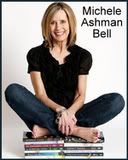
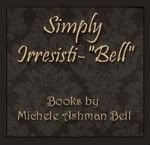





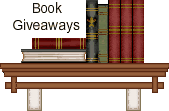















































-page-001.jpg)












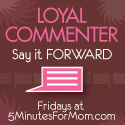
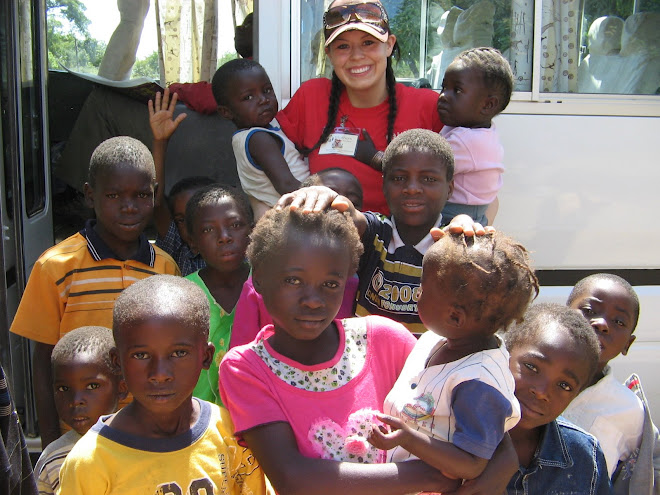
3 comments:
Great interview. I love Susan. She's a hoot:-)
Excellent interview, Michele. Thanks for featuring Susan.
I enjoyed learning more about Susan. Thanks!
Post a Comment